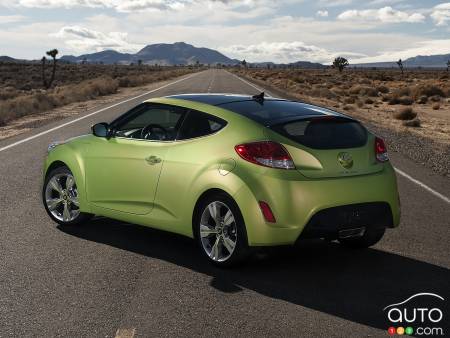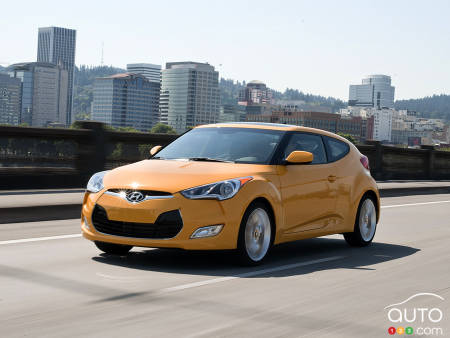• Hyundai is issuing two major recalls that together impact over 300,000 vehicles in Canada.
• The 2012-2013 Hyundai Veloster is the target of one of the two recalls.
• The second recall affects a variety of models, including the Veloster.
Hyundai has launched two recall campaigns in the past few days. One concerns a single model, the Veloster, which is no longer in the Hyundai lineup. The other affects a variety of models.
In the first case, 26,169 Velosters built between 2012 and 2013 are affected. The reason? The rear parking assist sensors, which are mounted on the rear bumper, could suffer a short circuit, increasing the risk of fire.
In Canada, 9,021 vehicles are included in the recall.

On the Transport Canada website, in addition to repair instructions, there are directions for model owners.
“Hyundai should notify owners by mail and ask them to take their vehicle to a dealer to have the rear park assist system fuse and any defective sensors replaced. Hyundai recommends parking the vehicle outside and contacting a Hyundai dealer if the instrument cluster is not working, the shifter is stuck in the Park position or if you see melted plastic on the rear bumper.”
While no accidents or injuries have been reported, Hyundai has received five reports of fires related to the issue, according to Consumer Reports.
The second recall is larger in scope. In Canada alone, it affects 295,577 vehicles from 2009-2018 model-years, with the Elantra, Equus, Genesis, Genesis Coupe, Santa Fe, Tucson and Veloster models implicated.

The problem affects the brakes.
Transport Canada explains that “over time, components under the vehicle, including brake lines could corrode. If this happens, a brake line could fail and leak. A brake fluid leak can result in reduced braking.”
Obviously, this can increase braking distances and, in turn, increase the risk of an accident.
Hyundai will ask owners to being in their vehicle to have the underbody inspected, including the brake lines. The dealer “will apply an anti-corrosion treatment to certain parts, and replace the brake lines if necessary”, Transport Canada explains.




